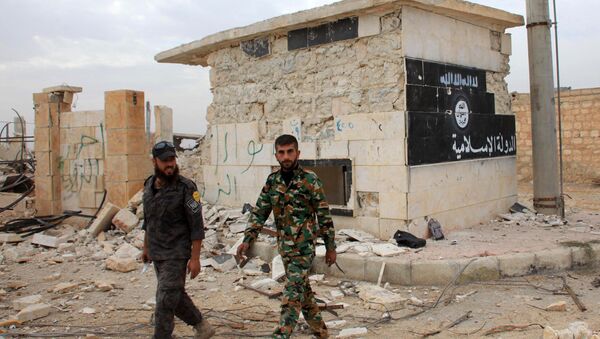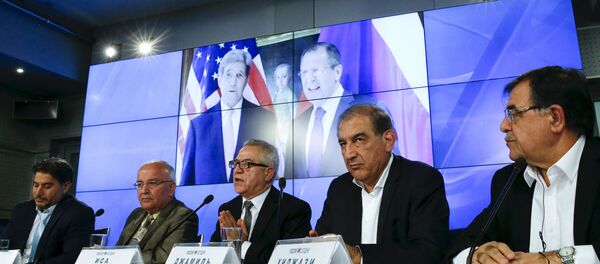WASHINGTON (Sputnik) — On Tuesday, US Secretary of State John Kerry announced that the parties to the Syrian peace process, often referred to as the Vienna process, were planning to hold talks in New York City on December 18.
"The Alawite constituency he [Assad] represents and who dominate the [Syrian] government need to be involved and protected," New York University Center for Global Affairs Professor Mark Galeotti told Sputnik on Tuesday.
Moscow, Galeotti claimed, could help by offering Assad and his family a safe exile while guaranteeing the security of the Alawites.
A political resolution in Syria, Galeotti added, is a long way off, but a process that at least builds the foundations for a deal between the Syrian government and elements of the opposition is possible.
Finalizing a political settlement could pave the way for the United States and Russia to cooperate more closely on efforts to defeat the Islamic State in Syria, Galeotti noted, although such cooperation will likely be "limited, grudging and arm's length."
George Washington University National Security Studies Program Director Matthew Levinger told Sputnik that an important precondition for a political settlement would be the provision of credible security guarantees to political and ethnic groups that have aligned themselves with the Assad regime.
"As long as members of these groups have existential fears for their own survival, they will not stop fighting," Levinger explained.
The solution, Levinger argued, must be more than a temporary ceasefire and needs to reflect a shared political vision for Syria's future on the part of Damascus and opposition leaders, as well as the United States, Russia, and other international actors.
The settlement of the Syrian civil war, he added, is an essential prerequisite for the United States, Russia and other countries to coordinate efforts against the forces of the Islamic State (ISIL or Daesh) in Syria. The militant group is outlawed in many countries, including Russia.
During the latest Vienna meeting, international mediators agreed to hold negotiations on the settlement of the Syrian crisis by January 1, 2016. The participating states set a six-month timeframe for Syria to form an interim unity government, while stipulating that elections in Syria should be held within 18 months.




